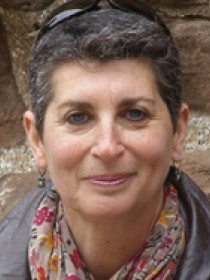
Janice Fine
Connect with Janice
About Janice
Fine teaches and writes about innovative union and community organizing strategies, historical and contemporary debates regarding federal immigration policy, strategies for improving enforcement of the nation’s minimum wage and overtime laws, and issues related to privatization. Prior to joining the faculty at Rutgers in 2005, Fine worked as a community, labor and electoral organizer for more than twenty years and continues to work closely with the national labor, immigrant rights and student movements. In 2008, Fine was appointed by New Jersey Governor Jon Corzine to the state Blue Ribbon Advisory Panel on Immigrant Policy, where she helped formulate recommendations on a range of issues including strategies to strengthen labor standards enforcement as well as establishing a Commission on New Americans. She is currently an Executive Board member of the Labor and Employment Relations Association and Co-convener of the New Jersey Alliance for Immigrant Justice.